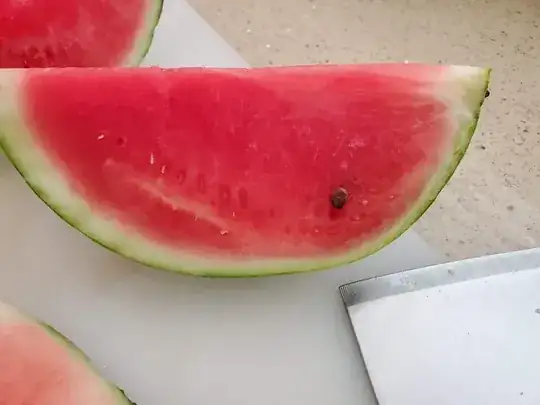Short answer: You can't know.
Interesting question! Like you mentioned already, it has to do with chromosomes. Normally a melon has 22 chromosomes (11 pairs, from each parent you get one copy of each chromosome). Now with watermelons, when treated with some chemical, you can get them to have 44 instead of 22 chromosomes, so for each chromosomes 2 copies from each parent.
When you cross the 22 kind with another 22 kind, you get viable seed containing 22 chromosomes. When you cross the 44 kind, you'll get viable seed with 44 chromosomes. But if you cross the 22 with the 44 kind, you'll get viable seed for melons with 33 chromosomes. These melons have difficulty producing viable gametes themselves (gametes are pollen or egg cells). They have difficulty with it, because normally you'll get half the number of chromosomes for gamete formation (so for the 22 kind, you'll get 11 chromosomes per gamete, and 22 for the 44 kind). For an uneven number 33, the mechanism (called meiosis) has difficulty with it and most gametes therefore end up with the wrong number of chromosomes. Some gametes do however have the right number, they do contain 11 or 22 right chromosomes.
So in your case where a watermelon with 33 chromosomes forms viable gametes they can contain either 11 or 22 chromosomes. Both are possible, and both are viable. You don't know which one. Furthermore, to form seed: pollen had to come from another melon to fertilize, and you don't know how many chromosomes the pollen cell contained. It could also be either 11 or 22. So in theory the seeds may contain 22 or 44 chromosomes (and will produce melons with seeds), or 33 chromosomes (the seedless melon type).
So the only way to find out is to sow the seed and see for yourself!
